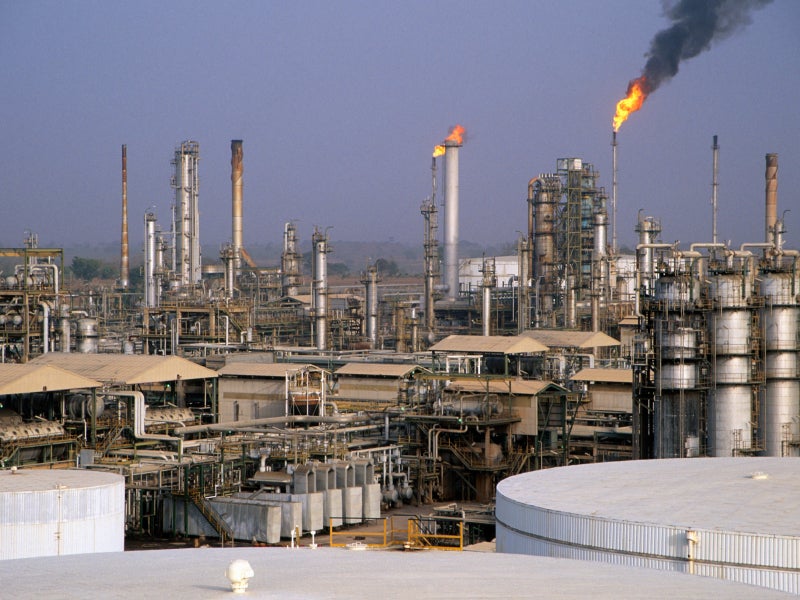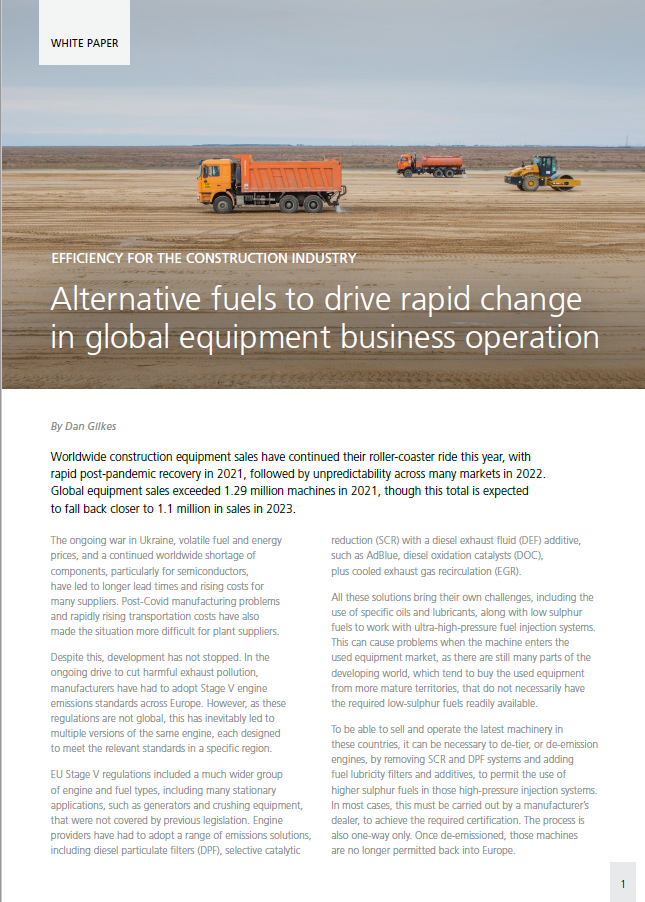
Energy prices in Europe have increased by 54% since the second half of 2021. Following Russia’s invasion of Ukraine, European natural gas prices increased by nearly 70%, and crude oil prices surpassed $105 per barrel for the first time since 2014. Russia’s invasion of Ukraine, Western sanctions and Russia’s decision to halt gas exports to some EU member states have fueled an EU energy security crisis.
The European Council decided in May 2022 to ban over 90% of all Russian oil imports by the end of 2022, with a temporary exception for crude oil delivered by pipeline. This was part of a sixth package of EU sanctions. It followed a ban on Russian coal.
How well do you really know your competitors?
Access the most comprehensive Company Profiles on the market, powered by GlobalData. Save hours of research. Gain competitive edge.

Thank you!
Your download email will arrive shortly
Not ready to buy yet? Download a free sample
We are confident about the unique quality of our Company Profiles. However, we want you to make the most beneficial decision for your business, so we offer a free sample that you can download by submitting the below form
By GlobalDataWith winter less than six months away, it is more important than ever for European nations to find alternatives to Russian energy imports.
The International Energy Agency (IEA) has seen some success with its energy security recommendations – notably in diversifying gas supplies – but not enough, particularly on the demand side, to keep Europe from finding itself in a highly precarious position today.
Europe’s energy security crisis
In May, Ukraine suspended a gas transit route to Europe, citing intervention by occupying Russian forces. The country stopped delivering gas to many European countries after they refused to comply with a new rule to pay in roubles.
In June, Kremlin-controlled energy giant Gazprom reduced gas exports through Nord Stream 1 to 40% capacity, blaming delays in the return of a turbine that Siemens Energy was fixing in Canada. Nord Stream 1 was supplying gas at only 20% capacity by the end of July. Siemens Energy and the German government say the returned turbine is ready and waiting to be deployed.
At the end of July, EU energy ministers agreed to reduce their natural gas consumption by 15% over the winter to avoid an energy meltdown, stoked by the fear that Russia could potentially cut off all gas supplies to the union. There is a race against time underway to replenish gas storages before the winter.
Germany has activated stage two of its emergency gas plan, and the country’s Economy Minister Robert Habeck has warned that if Russian supplies remain as low as they are today, Germany will face a gas shortage, forcing companies to close this winter.
According to a recent German poll, 58% of the population currently supports sanctions against Russia, despite the potential negative consequences for Germany. Russian President Vladimir Putin aims to reduce that figure to the point where it becomes unsustainable for German leaders to advocate for policies that assist Ukraine.
Alternative sources of gas
European countries are searching worldwide for alternative sources of gas to reduce their overwhelming and increasingly unsettling reliance on Russia’s gas, especially from Gazprom. Norway, Europe’s second-largest supplier after Russia, is already exporting at full volume. There have been new political agreements for more liquified natural gas (LNG) from the US and neighbourhood states such as Azerbaijan and Qatar, as it is one of the major suppliers.
“The energy relations between EU and Russia have undergone a seismic change,” says Raj Shekhar, an oil and gas analyst at GlobalData.
“The [Russian invasion of Ukraine] has dented Europe’s relationship with Russia and hence are forced to look for other alternatives. Europe is trying to prepare itself to make arrangements for floating [LNG] storage and regasification units,” he noted.
He added that this situation could be advantageous for the US in the short term. “The North America based LNG projects, especially from east coast, have suddenly started generating good interest as suppliers to mainland Europe,” he says.
However, while additional LNG imports may temporarily fill a vacuum, analysts say there is insufficient LNG to cover all of Europe’s energy needs, as Russia exported about 72% of its natural gas to Europe.
According to documents from The Guardian, African leaders are likely to use the next UN climate summit, COP27, in November to press for substantial new investment in fossil fuel resource development in Africa.
Rising gas prices have made the potential of African supplies even more appealing to their owners. Wealthier countries, including EU members, have signalled that they could support such developments amid the current gas shortage.
African oil and gas imports to Europe
Several African countries have emerged as potential sources of additional gas supplies for Europe. Mozambique, for instance, is one of the world’s most attractive LNG prospects. Mozambique’s state-owned National Hydrocarbons Company has acknowledged it could help meet Europe’s increased gas needs.
Mozambique’s National Petroleum Institute sees the potential for 14,000 new jobs in four key gas extraction projects already underway that could generate gas supplies for Europe. But there are obstacles. These LNG projects entail the construction of gas liquefaction units on the Afungi Peninsula in the Palma district, a town on the northeast coast of Mozambique. However, that work is currently at a standstill, with no fixed timetable for the restoration of operations, owing to attacks by Islamist terrorists.
Matthew Baldwin, deputy director general of the European Commission’s energy department, said the EU is also looking for extra gas supplies from Nigeria. However, as in Mozambique, domestic threats can hamper production. Oil and gas output in Nigeria is stifled by pipeline theft and vandalism; Nigeria LNG’s facility at Bonny Island is currently running at 60% capacity.
“If we can get [Bonny Island] up to beyond 80% [capacity], there might be additional LNG available for spot cargoes to come to Europe,” Baldwin said.
Energy security and net zero
For years, new oil and gas field development and pipeline construction projects in Africa have been hampered by Western banks’ and governments’ reluctance to fund new fossil fuel projects as the battle against carbon emissions has intensified.
Now Europe, which previously advised African countries to focus on renewable energy and leave oil and gas in the ground, is requesting more gas.
Yet recent extreme weather, such as heatwaves and wildfires in Europe and North America, is also fuelling fears that the climate catastrophe is worsening faster than expected. African countries are likely to be among the hardest hit by climate change. Drought already affects a broad part of the Horn of Africa, and millions of people are “marching into starvation”, according to the World Food Programme.
Mohamed Adow, director of the think tank Power Shift Africa, says Africa would be making a mistake if it chose to prioritise fossil fuels over renewable energy for investment. “Africa is blessed with abundant renewable energy in sun and wind,” he said. “Africa should not be shackled to expensive fossil fuels for decades.”
Yet the skyrocketing gas price is leading many African governments to consider untapped African deposits as a possible gold mine, regardless of the environmental consequences.
African environmentalists are concerned that the continent’s gas-rich states could fall into the trap of stranded assets. European governments will have to counter that fear and prove themselves willing to invest in countries such as Nigeria, Senegal, Angola, Equatorial Guinea, and Mozambique to monetise their resources.








